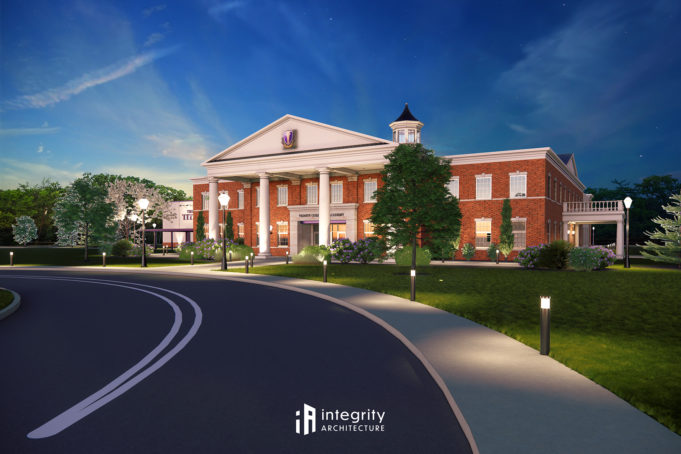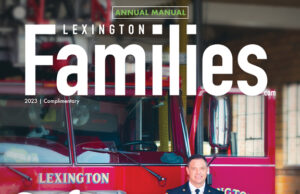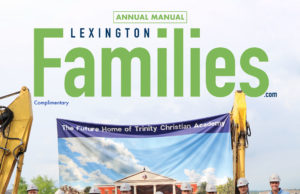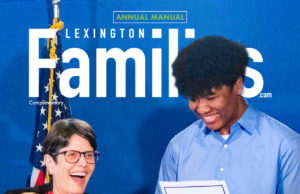Growth and expansion are the order of the day at Lexington’s Trinity Christian Academy, which prides itself on “core values of faith, scholarship, virtue, and community.”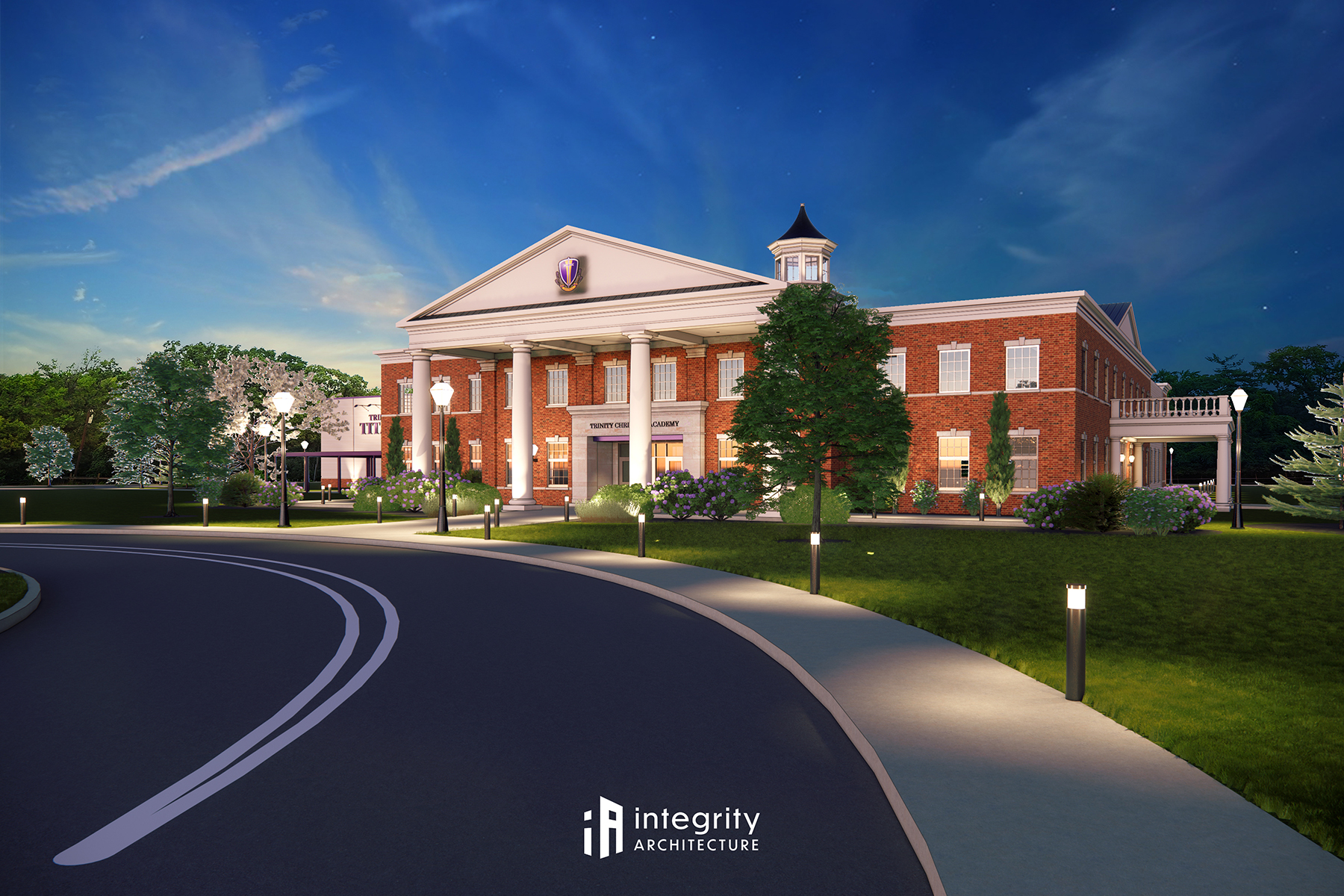
When the enrollment in the lower grades at the private day school began to surge in recent years, staff and leadership realized that the upper grades would soon be bursting with students — and that they “would outgrow the current facilities (and soon).”
They began the search in the Lexington area for land that could be home to the new campus and discovered the perfect spot when they found 45 acres of land on East Brannon Road. It was there that they encountered the first challenge: purchasing the land. As a non-profit organization, the school had to depend on the generous donations of people from the Trinity and Lexington community to help bring the vision to life.
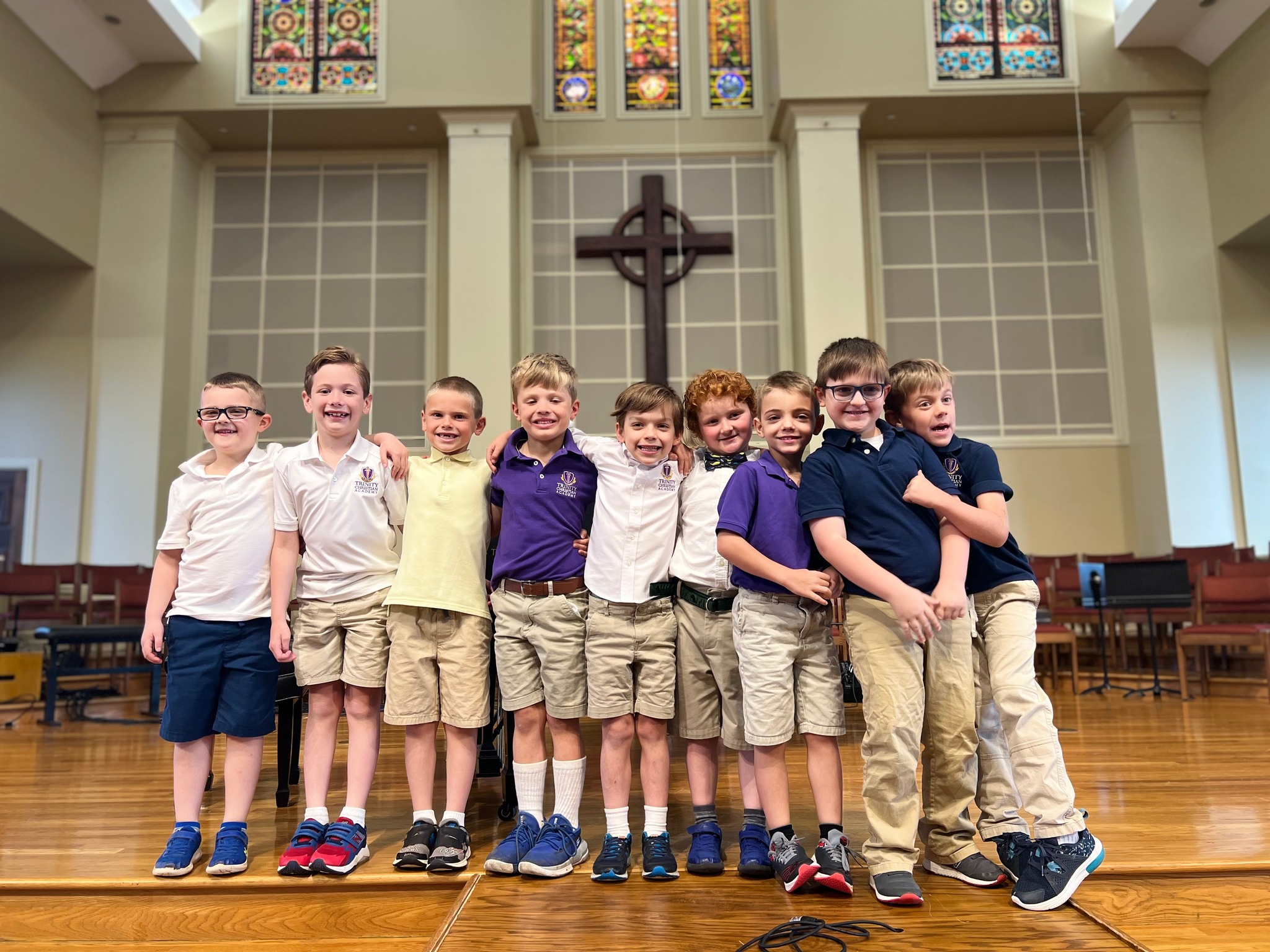 Through the generous donations of the Cowen Family, they were able to purchase the land that they needed, debt-free.
Through the generous donations of the Cowen Family, they were able to purchase the land that they needed, debt-free.
Since then, the Trinity team has been busy “developing what the new campus will look like to best serve our students and the kingdom of God.”
More than three decades ago, a handful of members of Tates Creek Presbyterian Church (TCPC) had a vision to open a school for their children that provided an alternative, more rigorous curriculum than what was being presented to them through the public school system.
These visionaries would open Tates Creek Academy (now Trinity Christian Academy) one year later in August of 1988 with a faculty of two, and 31 enrolled students. The school continued to grow year by year, adding a new grade each fall until the first graduating class was produced in 2000.
For the last 35 years, “God has blessed the founders’ dreams by making Trinity Christian Academy one of the strongest classical schools in the state. Trinity has graduated hundreds of students who have gone on to do great things for the glory of Christ and the good of the Bluegrass.”
Maintaining a low student-to-teacher ratio has been key, allowing students “to have more undivided attention from their teachers, which not only allows them to be more successful academically, but more importantly, as a person. Especially in high school, our teachers don’t just teach, they disciple and mentor their students. As a result, many of our alumni stay in contact with their teachers for years, resulting in life-long friendships with older, wiser, experienced people of faith all because of the time and energy their teachers were able to pour into them.”
For parents who may not be familiar with an academic focus on classical education, staff explain, “At Trinity, we believe classical Christian education is excellent, rigorous, and the future of education. Our students learn more than information that is memorized to pass a test; they learn how to formulate their own ideas and how to defend what they believe effectively. This is knowledge they will carry with them for the rest of their lives.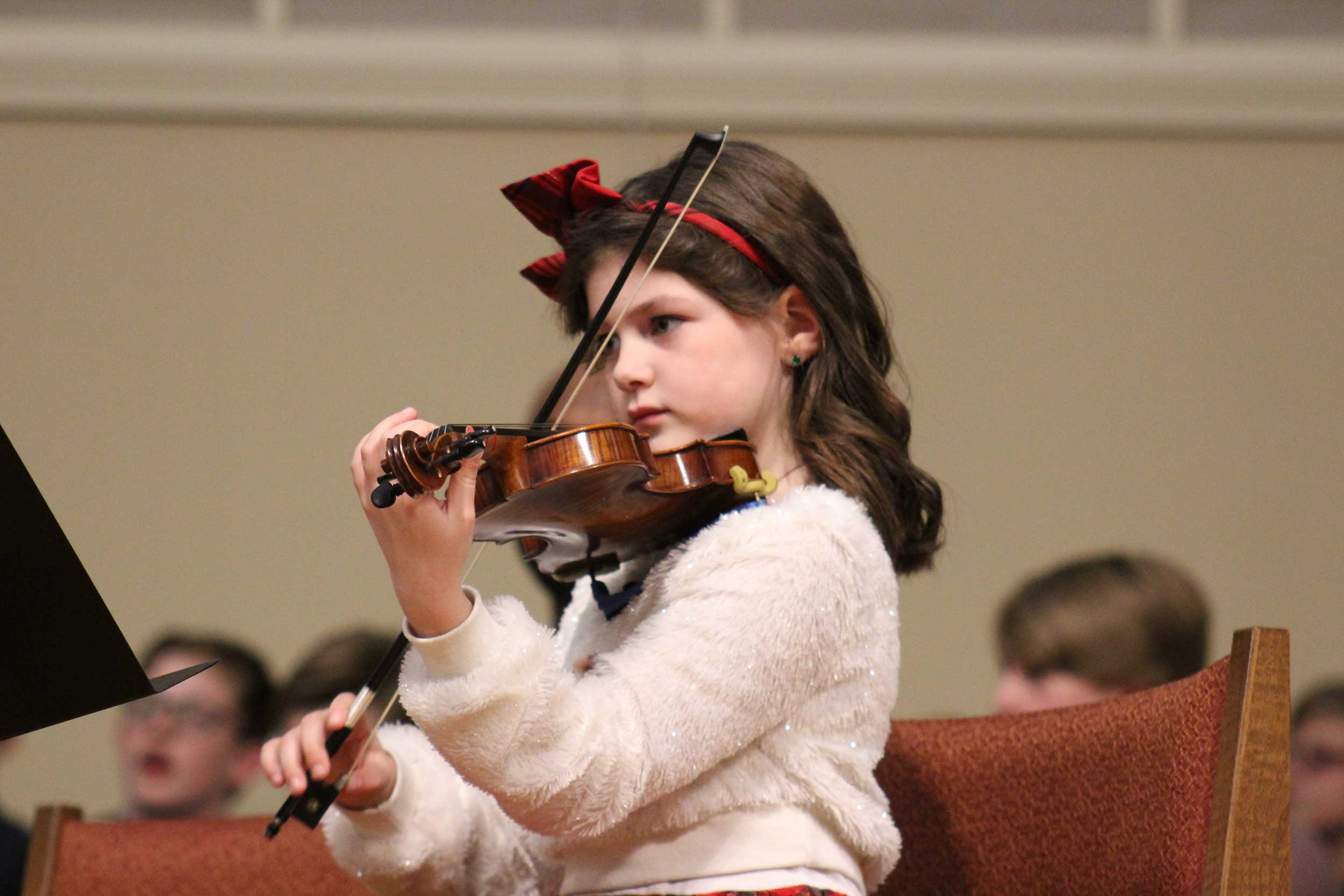
“The main philosophy of the classical Christian education (CCE) model is the Trivium. This concept was developed centuries ago to represent the three stages of childhood development. We believe that tailoring education to these stages produces a well-rounded individual with a heart for service and a love of Jesus. The Trivium is made up of three stages: The Grammar Stage (grades 1-5), Logic Stage (grades 6-8), and Rhetoric Stage (grades 9-12).
“In the classical education method, nothing is ever studied in isolation. We believe that students learn best when they are able to draw connections across different subjects. For example, while studying a unit on the Westward Expansion, students will learn about the major events in history while discussing important scientific discoveries of that era and how the historical events influenced these discoveries. In literature, students will read books based on early American history and will study and create art that was popular at the time. Students are able to find what interests them and they can further expand on that subject through research papers and oral presentations. Students begin oral research presentations in Kindergarten and continue through Grade 12 when they present their Senior Thesis based on a topic of their choice.”
A 2015 graduate, Libby Rockaway is the founder of a non-profit called MDdog.org which provides resources for Medical Alert Dog training standards and research; she has also written a book to instruct people how to train their dogs. When asked about her experience at Trinity, Libby noted that her foundational presentation and writing skills helped her receive the Thouron Award, a scholarship that has allowed her to pursue a 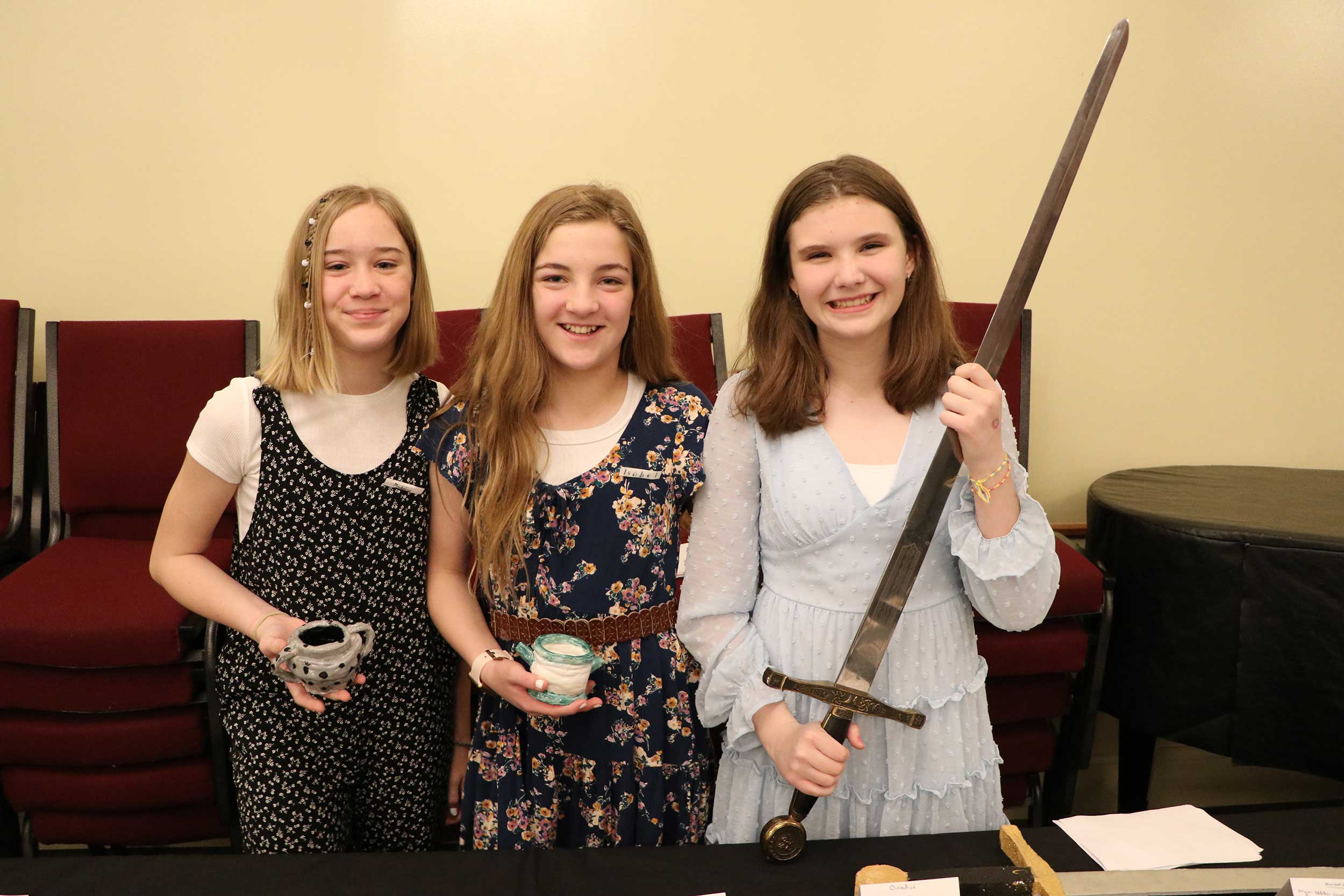 Master’s of Science degree in the United Kingdom. “The open topic theses during high school allowed me to delve into the specific subjects I was passionate about, furthering my knowledge and learning how to create an argument, develop it, and defend it—something which was required in almost every college class, whether it was participating in discussions or presenting an assigned side of an argument.”
Master’s of Science degree in the United Kingdom. “The open topic theses during high school allowed me to delve into the specific subjects I was passionate about, furthering my knowledge and learning how to create an argument, develop it, and defend it—something which was required in almost every college class, whether it was participating in discussions or presenting an assigned side of an argument.”
The alumni ranks at Trinity swell with success stories like these.
The leadership says, “At Trinity, we believe the foundational principles a student learns during these formative years are carried with them to college and beyond. We are proud that our students have found success in an array of different callings, from CEOs, to community leaders, to doctors, to military officers, and everything in between.”

